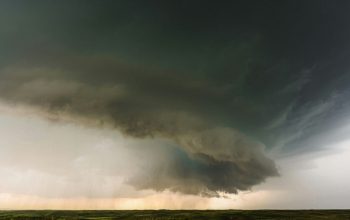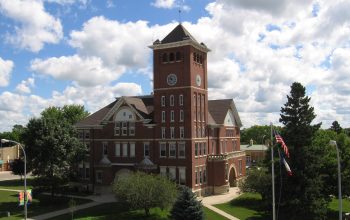A couple of weekends ago, dozens of fishermen descended on Lake Cornelia. They were after one thing – the not so elusive yellow bass. In a matter of a few hours, a couple thousand fish were caught totaling around 400 pounds. The results of the tournament, the Yellow Bass Crash Big Mass Ice Fishing event, confirmed one thing – there are still a lot of yellow bass in Lake Cornelia. And this is a big problem.
According to the Iowa Department of Natural Resources (DNR), yellow bass are a fish species that are non-native to natural lakes like Cornelia. They were first discovered in the lake in 2006 and have been exploding in numbers since then.
In information shared by the DNR after the two yellow bass tournaments at Cornelia in the last two months, they note that previous estimates of the fish population were confirmed. Using a population model that counted marked fish caught during the tournament, the DNR estimates that there are roughly 390 pounds of yellow bass per acre in the lake for a total of over 880,000 of the species in the lake. The upper end of the model even estimates that as many as 1.2 million yellows are possible in the lake.
As detailed in a Monitor story a year ago, this number of yellow bass in a relatively small lake is a major cause for concern. DNR Fisheries Biologist Scott Grummer says that yellow bass have become the dominant species in the lake, to the detriment of other species. A DNR study that counted yellow bass in the lake a few years ago also noted that they “found poor condition and growth of bluegill, black crappie, and yellow perch and that seasonal food items consumed were limited and of poor quality.” The study added, “The stunting of yellow bass had caused devastating effects that cascaded to the entire Lake Cornelia fishery.”
Grummer also says that they have seen other problems, like periodic summer fish die-offs due to density issues. In short, he explained, “This fishery is in trouble. We have one species of fish that is impacting every other species, out-competing and dominating them.” Overall, this results in a fishery that just isn’t very desirable and negatively affects both anglers and the many lake shore owners.
Over the last few years, the DNR has begun to take steps to improve the fishery. The plans started with studies and counting all the species of fish in the lake. Now that that step is complete, Grummer said, “It is time to take corrective action. Without changes to the lake, it’s not going to improve, and yellow bass will keep winning the war.”
As discussed in last year’s article, the DNR is considering a few plans. The ultimate goal, according to Grummer, is to “severely reduce the number of yellow bass.” This can be achieved in a few different ways. One is the complete renovation of the lake – essentially starting the fishery over with the complete loss of all fish. The DNR says that this is a good option and would allow managers to stock desirable fish species. But it would also take a few years for the fishery to redevelop. Also, dead fish will line the shores and there will be recreational hurdles like aquatic vegetation that can interfere with boating.
Another option is a partial renovation of the lake. Grummer explains this could be achieved by using a low dose of rotenone, a fish toxicant. If this is used, some fish, including yellow bass, will die. Afterwards, the DNR would do aggressive stocking of fish, including predators that would help control the remaining yellow bass population. With this plan, Grummer says the fishery would quickly rebound.
Avid fishermen are looking forward to an improved fishery. Richard Grimes, who enjoys fishing Cornelia and attended the recent yellow bass tournament there said, “I’m extremely excited for the DNR to rectify the problem with the yellows. They overtake a lake and destroy our game fish, be it the crappie, the walleye, and perch. Those fish are left no room to survive, so getting rid of the yellow bass will provide us with much greater sport fishing.”
Wright County Conservation Director Eric Rector said county conservation staff is also excited about the management plan. “Right now, the lakes in the county don’t really have good fishing,” he emphasized. “You can catch a lot of fish, but they’re not that great. If one of the plans works, we hope to see a diverse fishery where people can come and have successful fishing experiences.”
As it is now, Grummer emphasizes no final decision has been made about which route to go as they consider Lake Cornelia renovation options. For now, the DNR is seeking public input regarding their plans. Grummer stated that the DNR is planning to hold an open house in Wright County in the next month or so to hear from the public. Check back in the Monitor in the upcoming weeks for information on this meeting.


